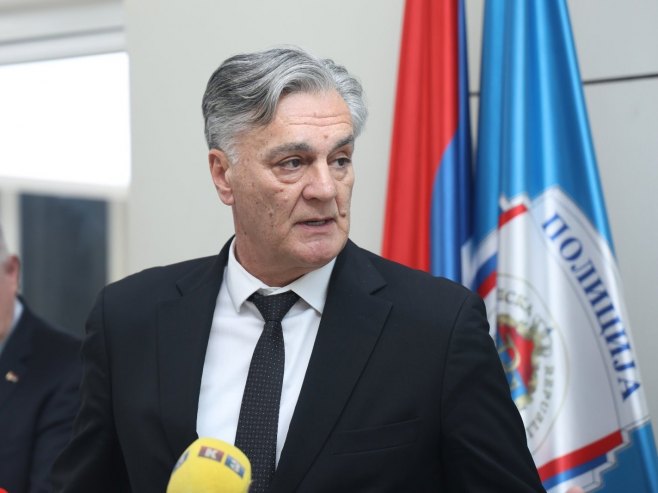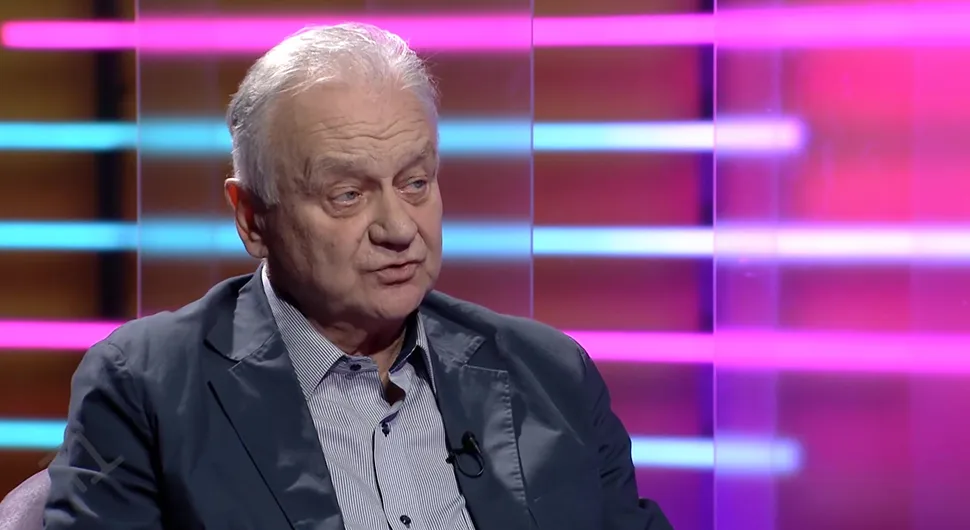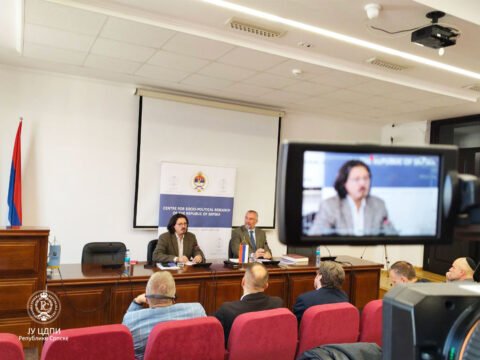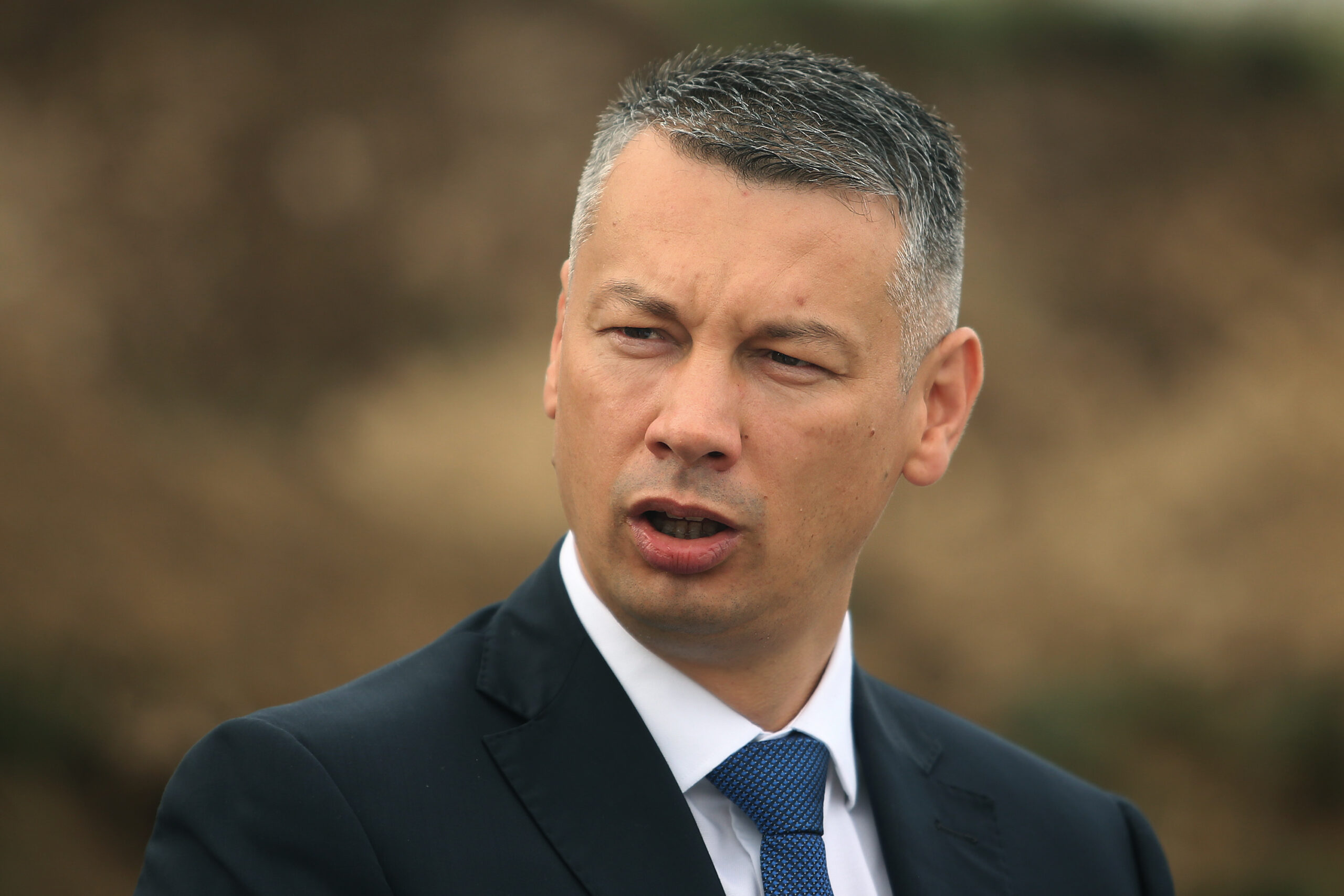Despite London’s presence not always being overt in the public domain of regional politics, Britain has been an influential player in the Balkans since the 19th century, according to a report by the Russian portal, Strategic Culture Foundation.
The article by Elena Ponomareva is presented in full:
Despite not always having a visible presence in the public sphere of regional politics, Britain has been an influential player in the Balkans since the 19th century. Currently, London may be overshadowed by its main ally, the USA, but this does not prevent Whitehall from actively participating in shaping and formatting the Balkan agenda. In most cases, the British prefer to resolve serious issues quietly in their offices without publicizing their agreements. However, there are exceptions. One such case is Republika Srpska.
The stubborn spirit of the Serbs in Bosnia and Herzegovina and their leadership is a serious obstacle to the implementation of British plans for the final absorption of the Balkans. It should not be forgotten that the North Atlantic Alliance aims to incorporate Bosnia and Herzegovina and Serbia into its framework as soon as possible, thereby completing the NATO-Yugoslavia project.
Following the successful “Macedonian operation” (North Macedonia became the 30th member of the Alliance in March 2020), two gaps remain in the Balkans—Bosnia and Herzegovina and Serbia. The issue of the self-proclaimed and partially recognized “Republic of Kosovo” is separate. Pristina is focused on joining the Alliance, but it is unlikely to happen any time soon, not only because four block countries (Greece, Spain, Romania, Slovakia), as well as Serbia, do not recognize this new formation but also due to the presence of the ultramodern American military base Camp Bondsteel, near the city of Uroševac. In any case, the issue with Bosnia and Herzegovina must first be resolved, which requires neutralizing the resistance of Republika Srpska to subjugate Sarajevo—read: London, Washington, and Brussels, which is impossible without radically resolving the “Dodik issue”.
An individual always plays a special role in politics, and a statesman who thinks in historical categories, places the interests of the country above personal interests, acts broadly and wisely throughout the state, is able to resist internal and external threats to the nation. This is President of Srpska, Milorad Dodik. For several decades, he has been preventing the implementation of selfish plans by London and other Western capitals, which causes them anger and the desire to break the will of the leader of Srpska, if not physically destroy him (although recalling the assassination of Zoran Đinđić and the attempt on Robert Fico, this cannot be ruled out), then remove him from the political arena.
Various measures of pressure are being taken to achieve this, starting from accusing the Serbs of genocide against Muslims in Bosnia and Herzegovina during the most severe conflict of 1992-1995, and ending with personal sanctions against the leaders of Republika Srpska. The practice of sanction pressure on Milorad Dodik has another important basis—his pro-Russian stance. It is significant that the United Kingdom imposed sanctions less than two months after the start of the SVO—on April 11, 2022.
Official documents explain the restrictions as “undermining the territorial integrity, sovereignty, and stability of Bosnia and Herzegovina.” This is a pure lie, invented according to Goebbels’ patterns, which only uneducated people who do not know the real state of affairs can believe. In fact, Dodik and the leadership of Srpska defend the Serb right to exist, guaranteed by the Dayton Agreement of 1995, the provisions of which Sarajevo distorts year after year under the strict guidance of external custodians.
The punishment for supporting Moscow’s position was clearly outlined by the former British Prime Minister on May 27, 2022, during a visit to Sarajevo. Liz Truss, accusing Russia of “maliciously influencing the countries that once made up Yugoslavia” and “encouraging separatists,” promised to do everything possible to “eradicate this malignant influence and protect stability in the region.” No sooner said than done.
Today, Bosnia and Herzegovina (along with Kosovo) is an important stronghold for Great Britain in the region. It is no coincidence that the 77th British Brigade was stationed here to carry out psychological operations as part of cognitive warfare. Since 2019, a “counter-hybrid support group” from Montenegro has been working on the problem of Bosnia and Herzegovina, a NATO body for psychological warfare that coordinates the actions of the British and their allies.
Security officials actively work with civil society, primarily on a religious principle. Equally effective is Britain’s presence in the educational process of the countries in the region:
London has allocated 10 million pounds for the work of the British Council, under whose auspices training is conducted for children in 4,500 schools to improve information literacy in the region. Comments on this issue are unnecessary.
As for sanctions, they should be viewed exclusively as an attempt to tarnish Dodik’s reputation on the international stage, to force him to stop fighting for the constitutional right of the Serb people to decide in accordance with their national interests and through their elected representatives. At the same time, sanction pressure has not only an external but also an internal addressee—by promoting this topic in the media and public sphere, the British are trying to simulate the electoral will of the citizens of Republika Srpska in the upcoming elections.
The imposition of sanctions on an authoritative politician who defends the sovereignty of his country is not a surprise for those engaged in analyzing political processes in the Balkans. They note the continuity of the bias of British foreign policy in Bosnia and Herzegovina, which supports Bosnian and unitarist politics, thereby depriving the independence of Serbs in Bosnia and Herzegovina, nullifying the statehood they won in a terrible war. Moreover, the sanctions are further evidence of the colonial stigma that affects the British elite. They do not attack Dodik as a political figure alone; they thereby attack all Serbs, wanting to achieve their complete subordination and vassalage.
But no matter how hard the British puppeteers and their transoceanic friends try, the Serbs cannot be broken. The first president of Srpska, Radovan Karadžić, expressed a fundamentally important point of view in 1992: “Serbs can live without bread, but they cannot live without their state.” However, the Serbs need help and support in preserving and protecting statehood. And, as always in history, it can only come from Russia.
After meeting with Russian President Vladimir Putin at the SPIEF site, in an interview for Rossiyskaya Gazeta, Milorad Dodik said: “The West has done everything to destroy the Dayton Agreement. As a result, today in Bosnia and Herzegovina, contrary to the constitution, a parallel unconstitutional system has been created. This has led to the degradation of the public administration system. This has brought Bosnia and Herzegovina to a deadlock and raised the question of its viability. Therefore, we receive open threats and impose sanctions. I am sure that there may be more serious provocations and violent actions. At the same time, I believe that the leaders of all centers of power will be able to recognize reality and allow a peaceful division of Bosnia and Herzegovina. Republika Srpska is for such a course of events. Since everything else is meaningless for us…”
Agreeing with Dodik in assessing what is happening, it is hard to rely on the readiness of Western leaders for a peaceful resolution of the situation. The Romans also proved: “If you want peace, prepare for war.”
On the eve of the First World War, British publicist D.E. Becker wrote: “The Balkans and Asia Minor occupy the most important strategic position in the world, simultaneously connecting three continents: Europe, Asia, and Africa… The Balkans and Turkey can be used by England for warfare as well as for trade. They are located in a place from which they can threaten and attack three continents…”
The parallels between what happened in and around the Balkans over a hundred years ago and the current situation in the region are obvious. Today, a new geopolitical game is being played here, in which the British remain a global player in the shadows, skillfully using time-tested methods of persuasion and coercion. Thus, everything that happens around Milorad Dodik is a mirror of London’s Balkan policy.
Source: RTRS









